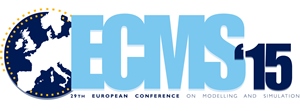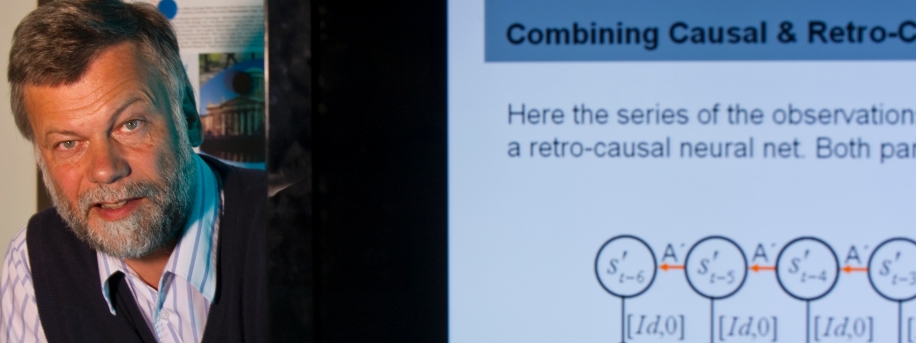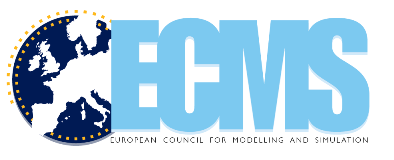
ECMS 2015
 Technical
University
of Sofia, Bulgaria
Technical
University
of Sofia, Bulgaria
local pages:
http://fa.tu-sofia.bg/te/ECMS2015/
May 26th
- 29th, 2015
Albena (Varna),
Bulgaria
Invited Speakers



4.jpg)
7.jpg)
9.jpg)
We are happy to announce our three Keynote Speakers for 2015:
Senior Principal Research Scientist
SIEMENS Corporate Technology
Scientific Advisor of the German Society of Operations Research (GOR)

Study of mathematics, computer science and
operations research in Bonn,
diploma 1982 in mathematics.
Research in
applications of control theory in economics at the University of Bonn until
1987,
PhD 1987 in economics.
Since 1987 at Siemens AG, Corporate
Technology department.
Research in circuit simulation, since 1988 in
neural networks.
Current research interests:
Optimization, time
series analysis and economic and engineering applications of neural
networks.
Work in the development of feed forward, (large) recurrent and
neurofuzzy network architectures
and algorithms for the modeling of
economical and technical dynamical systems.
Since 1990 leader of the
project group ' Neural networks for forecasting and diagnosis'.
Head of
the SENN development (Simulation Environment for Neural Networks).
Current position: Senior Principal Research Scientist.
Scientific Advisor
of the German Society of Operations Research (GOR).
*****
Causality versus Predictability in Neural Network Modeling
5 steps on how to improve
modeling
using recurrent neural networks
part of SPRINGER "Neural Networks: Tricks of the Trade" ISBN: 978-3-642-35289-8
**************************************************
Petko H. Petkov
Technical University of Sofia,
Bulgaria
Faculty of Automatics
Department of Systems
and Control
Control Theory, Robust Control, Numerical Methods, Software for
Control Systems Design

Petko
Petkov received M.S. and Ph.D. degrees in control
engineering from the
Technical University of Sofia in
1971 and 1979.
He has been a professor of control theory
in the Department of Systems and Control
at the
same university
since 1995.
His research interests include numerical
methods for control systems analysis and design,
robust
control systems design, and development of algorithms and
software for computer-aided control systems design.
He
coauthored Computational Methods for Linear Control Systems
(Prentice Hall, Hemel Hempstead, U.K., 1991),
Perturbation Theory
for Matrix Equations
(North-Holland, Amsterdam, 2003)
and
Robust Control Design
with MATLAB®
(Springer, London, 2005,
2013).
*****
Design and implementation of robust control laws
This
lecture is devoted to various issues related to the design
and practical implementation of high order robust control
laws. We consider derivation of plant uncertainty models
using analytical or identification procedures,
implementation of different schemes for μ-synthesis, choice
of weighting filters and controller order reduction.
Additional important problems arising in the framework of
embedded control systems, like removing the sensor drifts,
generation of control code from Simulink® and effect of
single precision arithmetic on the controller stability, are
discussed in details. As a benchmark example we consider the
robust control of two-wheeled robot using various
controllers of order up to 30.
**************************************************
Alexander H. Levis
University Professor of
Electrical, Computer and Systems Engineering
George Mason University
Fairfax, VA 22030, USA
Alexander H. Levis is University Professor of Electrical, Computer, and Systems Engineering and heads the System Architectures Laboratory in the Volgenau School of Engineering, George Mason University, Fairfax, VA. He was educated at Ripon College where he received the AB degree (1963) in Mathematics and Physics and then at MIT where he received the BS (1963), MS (1965), ME (1967), and Sc.D. (1968) degrees in Mechanical Engineering with control systems as his area of specialization. Dr. Levis is a Life Fellow of the Institute of Electrical and Electronic Engineers (IEEE) and past president of the IEEE Control Systems Society; a Fellow of the American Association for the Advancement of Science (AAAS), a Fellow of the International Council on Systems Engineering (INCOSE), and an Associate Fellow of the American Institute of Aeronautics and Astronautics (AIAA). For the last fifteen years, his areas of research have been architecture design and evaluation, resilient architectures for command and control, and adversary multi-modeling for behavioral analysis. He has over 280 publications documenting his research.
*****
MULTI-FORMALISM MODELING OF HUMAN ORGANIZATIONS
The modeling of a human organization for the analysis of its behavior in response to external stimuli is a complex problem and requires development and interoperation of a set of several models. Each model, developed using different modeling languages but the same data, offers unique insights and makes specific assumptions about the organization being modeled. Interoperation of such models can produce a more robust modeling and simulation capability to support analysis and evaluation of the organizational behavior. Meta-modeling analysis based on Concept Maps and Ontologies indicates what types of interoperation are valid between models expressed in different modeling languages. The approach is illustrated through several examples focusing on the use of Social Networks, Timed Influence Nets (a variant of Bayes Nets), and Colored Petri nets.
Page
created by M.-M. Seidel
© Copyright ECMS - All Rights Reserved
